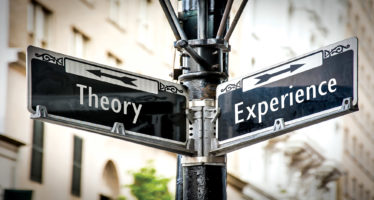Meet the Enigmatic Genius Who Changed Chess Forever
Few names in the classic game’s history shine as brightly as Bobby Fischer’s.

From child prodigy to grandmaster, Bobby Fischer didn’t waste any time in his rise to the pinnacle of the chess world. He certainly burned brightly, but his brilliance was tempered by his enigmatic nature — and his eventual, spectacular unravelling.
During the height of the Cold War, his historic 1972 World Chess Championship match against Boris Spassky went beyond the confines of the sport; it was a symbolic clash between East and West. Fischer’s triumph cemented his place in the chess firmament and enthralled the world.
The Child Prodigy
His rise to glory began at an extraordinarily early age. Born in Chicago in 1943, Fischer discovered his passion for chess at six and became obsessed with the game. He spent hours studying, analysing classic games, and competing against anyone willing to take him on.
Fischer’s unusual training methods, which focused on self-directed study and relentless practice over official coaching, produced astounding outcomes. He won the US Junior Chess Championship at 13, and a year later became an International Master. Known for his strong strategy, tactical skill, and unyielding drive, Fischer made seminal contributions to chess theory, particularly in opening preparation.
The Match of the Century
The 1972 World Chess Championship between Fischer and Spassky was more than just a contest between chess titans; it was a clash of philosophies amid Cold War tensions. Fischer’s quirky behaviour and unusual demands nearly delayed the event, but when it finally took place in Reykjavik, the world witnessed brilliance.
Challenger Fischer’s aggressive style initially overwhelmed Spassky. Despite forfeiting the second game, Fischer made an incredible comeback, marking a historic moment in chess by ending Soviet dominance. Millions tuned in to watch, captivated by the games and the drama.
Fischer vs. Grandmasters
Fischer’s playing style was a blend of aggression, resilience, and strategy, with a peak rating of 2785 in 1972, one of the highest ever. His mastery, tactical genius, and preparation made him a formidable opponent for any grandmaster.
While today’s grandmasters benefit from technological advancements and extensive databases, Fischer’s unique style and work ethic suggest he would still be competitive in the modern era. His legacy remains intact as one of the true greats, even if the game has evolved.
The Money Machine
Fischer’s influence extended beyond the board, helping to transform chess from a niche activity to a financially viable sport. His role in the Professional Chess Association (PCA) set the stage for future professional organisations by recognising top players’ worth.
Fischer also commanded huge fees for exhibitions and his 1992 rematch with Spassky reportedly netted him millions. His book, My 60 Memorable Games, remains widely read, keeping his legacy alive as a chess “money machine.”
The Great Unravelling
Fischer’s 1972 victory marked the peak of his career, but also the start of his decline. Later, he withdrew from public life and espoused controversial views, becoming a pariah due to his anti-Semitic beliefs and conspiracy theories.
Legal issues further isolated him. His decision to play a rematch against Spassky in the then-Federal Republic of Yugoslavia led to an arrest warrant in the US, forcing him to live in exile. He died in 2008 at 64, his legacy as a chess prodigy overshadowed by his actions and beliefs.
Fischer’s story is a cautionary tale about the fragility of talent and the dangers that accompany ambition. While his legacy as a chess icon endures, his personal life serves as a reminder of the potential pitfalls of unchecked genius.
You may have an interest in also reading…
The Unseen Shift: How Creeping Normality Rewrites Our World
Gradual, barely perceptible shifts can normalise the unacceptable—reshaping everything from corporate decision-making to ecosystems and civil discourse. Understanding “creeping normality”
Marc Langenbrinck, Mercedes-Benz Schweiz CEO: Finding and Keeping the Exact Right Competitive Angle
Mercedes-Benz is enjoying a great run. Its cars have set new sales records in Switzerland, Spain, Belgium, Portugal, and Poland
WEF Recognises Young Global Leaders from Africa
The World Economic Forum announced last week the new members selected to join the Forum of Young Global Leaders. From















































































